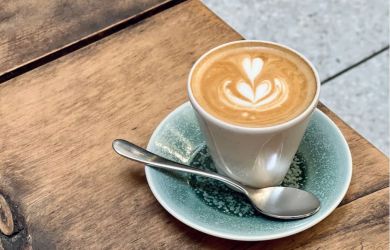
February 10, 2011
Roy Ayers
The jazz-funk icon tours with the producer who sampled him
Originally published on metropolis.co.jp on February 2011

Photo by Dan Grunebaum
It’s not often that you get to interview someone who’s been touring Japan as long as you’ve been alive.
Iconic jazz-funk vibraphonist and vocalist Roy Ayers first came to Japan in 1966 with drummer Chico Hamilton. “We got off the plane and they had a red carpet going to the terminal—and geisha girls,” he recalls in an interview following last year’s Skinni Pants festival in Daikanyama. “It’s the only time I’ve seen that, and this is now my 12th time performing here.”
With the success of his signature 1976 hit “Everybody Loves the Sunshine,” Ayers was soon fronting his own tours to Japan. In four decades, he’s played everywhere from Suntory Hall to dance club Unit to sit-down supper venues like Billboard Live, where he’ll be performing next week. The appeal of his music among dance aficionados as well as jazz and funk fans gives him an adaptability that’s normally unheard of for 70-year-old living legends.
“It’s just something that’s happened, but I feel fortunate to have been able to play so many different gigs,” he says, with characteristic positivity. “And each time it is wonderful and offers something new to me. There is always something happening here, and I thrive on good energy. So I always have a good time in Japan.”
Notwithstanding the reverence with which Ayers is regarded by music junkies, he remains unknown to much of the wider public. This is despite the fact that many will have heard samples of his music in songs by artists from A Tribe Called Quest to Erykah Badu.
“I’ve got more sampled hits than anybody,” he claims, noting that “Everybody Loves the Sunshine” has been used more than 20 times. “I think James Brown has more samples, but I have more sampled hits, and I feel very proud. It just happened, and at first I didn’t try to secure any of them. My kids would say, ‘Daddy that’s your music.’ And I would say, ‘That isn’t my music, someone sampled it.’”
For years, Ayers went unpaid for such use of his songs, some of which found their way into profanity-laced tracks that upset him. But the hip-hop community has recently come around, paying respect to the source of much of its music.
Last April, Revive Da Live, a New York music series devoted to highlighting the roots of hip-hop in jazz, hosted a concert featuring Roy Ayers and one of his most enthusiastic samplers, producer Pete Rock. The event made the connection explicit by segueing Ayers’ milestone songs into Rock productions like “Searching,” which was named after the track that supplied its main riff. The night went so well that Ayers invited Rock to join him on his Japan tour, meaning the upcoming Billboard Live sets will have a more urban flavor than recent visits.
While Ayers’ music reached forward into a hip-hop future, it also looked back to the roots of black music. In 1980, he toured Nigeria with Afrobeat pioneer Fela Kuti, and the pair went on to release an album together.
“Fela Kuti was a true delight,” Ayers recalls. “He was not just a musical genius. With him, I learned a lot about my African heritage. One of the first things I said was, ‘Fela, I want to go to the bush.’ And he said, ‘You got to live the bush.’ He was a teacher and a politician as well as a master musician and dancer.”
Still, their three-week tour, culminating in a joint performance at the National Stadium in Lagos, also served to highlight the differences between African and African-American ways of thinking.
“Fela did not deny that he loved pussy, like most guys do, and that’s what killed him,” Ayers says of Kuti’s 27 wives and his death from AIDS. “He said this is the African way: whenever there were more women in the tribe than men, if a man could afford more than one wife, he would have one.
“He said, ‘I make love to four of my wives every night,’ and I said, ‘How is that?’ And he said, ‘With this.’ And he pulled out a container with some black oily liquid, and took some out and mixed it in a glass of water, and the water turned white like milk. And then he drank it, and he asked me, ‘Do you want some?’ And I said, ‘No, no!’”
Good decisions, good taste and musical brilliance lie behind Ayers’ success. But he’s the first to admit that his life has also been charmed. “My mother and father reared me on [vibes legend] Lionel Hampton’s music,” he recalls. “When I was five years old they took me to see him at the Paramount in LA, and during the performance he was walking around the audience singing songs. And he gave me a set of mallets! I couldn’t believe it!
“My mother and father told me, ‘Lionel Hampton laid a spiritual vibe on you.’ And my mother would say, ‘One day I’m going to see your name in lights’—she instilled that in me—and that’s really what happened before she died. She saw my name in lights.”
Roy Ayers
Feb 23, 7 & 9:30pm, ¥6,800-¥8,800. Billboard Live, Roppongi. Tel: 03-3405-1133.





